Body and Health
Simple Ways to Add More Vitamin D to Your Daily Diet
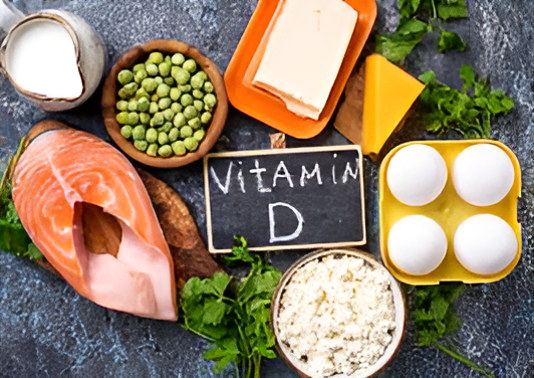
Vitamin D is a daily vitamin your body needs. It supports healthy bones, strengthens your immune system, and even makes you feel better about yourself. Too bad most of us don’t get enough vitamin D—especially those who stay mostly inside or live in areas where the sun doesn’t shine often enough. The best part is that you can boost your vitamin levels by adopting a few new habits in your diet and daily routine. Here in this blog entry, we will be talking about the best ways to increase your vit-D levels with diet, sunlight exposure, and supplements.
Why Vitamin D Matters to Your Wellbeing
Vitamin D plays a part in keeping your body in form and balance. Its primary function is to help your body absorb calcium, which maintains bones and teeth healthy. But wait, there’s more, vit-D also helps your muscles move, your nerves transmit messages, and your immune system fight infections. If your body does not get enough amounts of vitamin D, you might feel weak, get sick more often, or even suffer from bone pain. That is why getting enough amounts of this vitamin is important at all ages.
Sunlight: The Easiest Way to Get Vitamin D
Your body will make vitamin D naturally when your skin is out in the sunlight. It only takes 10 to 20 minutes of sun a few days a week to have sufficient vitamin D. That is calculated by many different factors, including where you live, what time of year it is, what time of day it is, and your skin color. Wearing sunscreen is still required in order to protect your skin, but you can go outside for a short time without it. Go for a walk outside in the morning sunlight or play outside to naturally boost your vit-D levels.
Top Foods That Are High in Vitamin D
Food is a great way to add more vit-D into your life. Some have it naturally, while others are fortified, where the vitamin is added. Fatty fish such as salmon, mackerel, and tuna have plenty of it. Egg yolks, beef liver, and cheese contain traces of it. Fortified foods such as milk, orange juice, cereals, and yogurt can be of assistance too. Try to include these foods in your regular meals to maintain an ongoing supply of vit-D. Variation in intake is an accessible and innovative method of staying healthy.
Eat More Mushrooms
Mushrooms are one of the few plant foods that have vitamin D in them. Some mushrooms, especially those that have been sunlit or ultraviolet (UV) light-exposed, are rich in it. Look for the “UV-exposed” or “vitamin D-enriched” mark. Portobello, maitake, and white button mushrooms are all good options. Throw them in salads, pasta, stir-fry, or even pizza. Besides being delicious and having lower calories, they are good for your immune system too. Mushrooms are a great option, especially for vegetarians or those who eat fewer animal foods.
Try Vitamin D Supplements If Needed
At times, food and sunlight cannot do the trick, particularly in winter or in places where weather is cloudy. A supplement can help in such situations. Vitamin D supplements are two in kind: D2 and D3. D3 is superior since it remains in your system longer. Before consuming any supplement, consult with your doctor or healthcare provider. They might get a blood test to determine your current vitamin D level. If you’re low, they can advise you on the right dose to take. Supplements are a good and safe way to supplement your levels when diet alone is not enough.
Best Daily Habits to Boost Vitamin D Levels
Creating easy habits can introduce more vit-D into your day. Go out for a short walk in the morning sun. Add vitamin D foods as a breakfast or lunch choice. Drink milk with supplements or eat cereal with supplements. Try grilling fish once a week or scrambling eggs and adding cheese. Take a supplement at the times your doctor suggests. All these little changes can add up and maintain your body healthy and strong.
Be on the lookout for signs of Vitamin D Deficiency
Vitamin D deficiency might be hard to spot at first. But your body may send you warning signs. You may get tired more often, get ill a lot, or have back and bone pain. Depression or delayed wound healing are also suffered by some. If you have any of these, visit a doctor. A blood test can check your levels, and they will tell you what to do best to repair the problem. Early childhood care can prevent long-term health issues and increase your daily energy.
This vitamin is small, yet it punches big when it comes to your health. Keeping the correct amount within your system on a daily basis keeps bones strong, sharpens your immune system, and increases your well-being. You don’t need to make sweeping changes—eat more foods that are vitamin D-rich, spend time in the sun, and talk with your doctor if you feel that you need a supplement. With good choices and healthy habits, you can help your body get the vit-D it needs to thrive.
Body and Health
Hot Water Benefits: Simple Reasons to Sip Every Day

Drinking hot water is an easy habit that can benefit your health in numerous ways. It makes your body function better, from your stomach to your skin. Whether it’s morning or bedtime, a glass of warm water can ease you into a calm and refreshed state. It’s one of the oldest pieces of advice for good health in history—and it’s for a good reason. Here, in this blog, we are going to talk about the most effective health benefits of drinking hot water every day and how it can help your body as well as mind.
Improves Digestion Slowly and Naturally
Hot water can help make digestion easy by increasing blood flow to the stomach and relaxing the digestive system muscles. Having warm water, especially in the morning, can help flush out waste from your body and prevent constipation. It also helps your body digest food better and absorb the nutrients your body needs. This relieves bloating and leaves your stomach light and feeling comfortable. Drinking hot water before or after a meal is a small but beneficial routine for your gut.
Relieves Nasal Congestion and Sore Throats
Drinking hot water creates steam that loosens nasal and chest mucus. It soothes a sore throat and helps to breathe when sick. Heat relaxes throat muscles, which can reduce coughing and inflammation. Lemon or honey with warm water can be very comforting if you have a cold. It is a natural home remedy to ease breathing and pain during flu or allergy season.
Keeps You Hydrated All Day Long
Good health is all about remaining hydrated, and hot water is just as effective as cold. It’s much easier for some individuals to get more water in when it’s warm, especially in the morning. Hot water gets you to slow down and sip, meaning you’re becoming hydrated but not clogging your stomach up. Hot water also provides a consistent amount of energy and fresh-looking skin. Utilizing hot water over sugary drinks also reduces unnecessary calories that you’re putting in your body.
Helps Weight Loss in Small Steps
Hot water alone will not cause you to lose weight, but it can work in your favor. Drinking it before meals can fill you up and keep you from overeating. It might also boost your metabolism slightly and help your body metabolize fat. When lemon or ginger is included, it can work even better. While it is small benefits, it can be significant if added to what you are doing as part of a diet and exercise routine.
Enhances Blood Flow Naturally
Warm water causes your blood vessels to dilate, increasing circulation and allowing oxygen to travel more freely throughout your body. This can relax your muscles, ease cramps, and increase energy levels. Increased circulation is also good for your heart and brain. Drinking hot water after exercise can help you recover easily and reduce muscle soreness. It’s a simple way to provide your circulation with a daily injection of improvement.
Assists with Reducing Stress and Improving Mood
Having hot water may be relaxing to your body and mind. The heat eases your tense muscles and de-stresses you. It also slows down your breathing and helps you be present, especially if you take it slowly. Having herbs like chamomile or mint is even more relaxing. Take hot water at break times, during studying, or at night to wind down and recharge.
Aids in Detox and Cleansing
Hot water makes it easier for your body to eliminate waste. It elevates your body temperature a notch, and your body sweats and urinates more. These help eliminate toxins from your body. Taking warm water in the morning on an empty stomach is especially helpful in purifying your digestive system. Lemon or turmeric is also taken by some as supplements to provide additional detoxification assistance. With this routine being regularly performed over time, you’ll be able to feel lighter and cleaner inside.
May Ease Menstrual Cramps
If you have period cramps, hot water might ease discomfort. Heat relaxes your stomach muscles, which relieve cramping. Enhanced blood flow also reduces pain in menstruation. Drinking hot water with ginger or cinnamon might ease you further. It’s safe and natural to enhance without a pill.
Soothes the Skin and Makes it Radiate
Consuming hot water keeps your skin hydrated internally. It helps to eliminate the toxins that can lead to acne and skin dullness. Warm water also provides proper blood supply to the skin, making it look healthy and glowing. The regular practice over a period of time can result in your skin looking newer, softer, and healthier. Combine it with healthy diet and sleep for even better results.
Best Times to Drink Hot Water
You’ll gain the most benefit from consuming hot water at critical junctures. In the morning, it revs your body and starts digestion. Before eating, it will curb hunger and speed up your metabolism. Before bed, it enables you to relax and sleep better. Don’t consume too much during meals as it could hinder digestion. Utilize warm—not boiling—water so that you avoid burns.
A Simple Habit with Big Benefits
One of the easiest things you can do to take care of your body is to drink hot water. It helps with digestion, circulation, stress, and even your complexion. It costs almost nothing, and it’s a high-reward habit that can be incorporated into any routine. Even one to two cups a day will reward you in the long term. Try it for a week and see how you feel. You might be surprised at how much better you feel after just making this one simple change.
Body and Health
Cholesterol Control Steps: How to Lower Your Levels Naturally
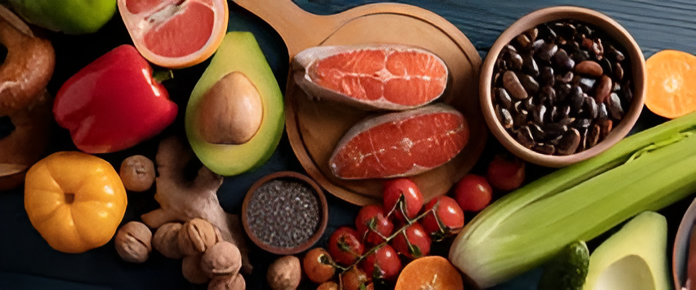
High cholesterol risk to your heart. But you can manage it. With simple changes every day, you can reduce your cholesterol naturally. In this blog, you’ll learn easy, proven ways to reduce bad cholesterol and boost the good type. These habits will keep your heart in shape and your well-being on course.
Understand Cholesterol: The Basics
Cholesterol is a fatty substance in your blood. Your body uses it to build cells. But too much of it can plug your arteries. There are two types: LDL (bad) builds up in arteries, and HDL (good) tries to remove it. You should also keep an eye on triglycerides, another harmful fat. Knowing your numbers helps you take action early and protect your heart.
Eat More Heart-Healthy Foods
The food you eat directly affects your cholesterol levels. Whole grains such as oats and barley contain fibre that soaks up cholesterol. So do beans, fruits, and vegetables. Nuts and seeds contain healthy fats. Fatty fish such as salmon provides omega-3s that provide a boost to your heart. Fresh, unprocessed foods are the key to lowering bad cholesterol naturally and safely.
Avoid Foods High in Saturated and Trans Fats
Certain fats raise LDL rapidly. These include saturated fats found in red meat, butter, and cheese. Even worse are trans fats, typically found in fried foods and snacks, which raise LDL and lower HDL. Choose lean meats, cook with olive oil, and read labels on food. Easy trades keep your heart healthy daily.
Be More Active Every Day
Exercise increases good cholesterol and decreases the bad type. Try for 30 minutes of activity five days a week. Walk, cycle, swim, or dance—just keep moving. Physical activity makes your heart pump more efficiently and circulation better. Being active also assists with losing weight, which aids in maintaining healthy cholesterol levels.
Lose Extra Weight Slowly
Being overweight affects cholesterol. Even a modest reduction in weight—5 to 10% of body weight—can improve LDL and HDL levels. Do not attempt crash diets. Shoot for long-term change: portion control, water, and less added sugar. Every pound lost helps your heart and your energy level.
Quit Smoking to Improve HDL
Smoking decreases good cholesterol and harms blood vessels. Stopping makes HDL go up and lowers your risk of heart disease quickly. In weeks, circulation gets better. In months, your heart improves. Secondhand smoke is also dangerous. Keep yourself and your loved ones safe by being smoke-free.
Drink Alcohol in Moderation
Too much alcohol raises blood pressure and cholesterol. If you do drink, drink in moderation. That means one drink a day for women and two for men. Red wine may raise HDL levels somewhat, but the dangers generally far outweigh the advantages. If you don’t drink already, it’s best not to start.
Consider Supplements (With a Doctor’s Approval)
There are a few supplements that can help lower cholesterol. They include plant sterols, psyllium husk, and omega-3 fish oil. Supplements work best, though, when paired with a healthy diet and regular exercise. Talk to your doctor before adding any new treatment. What works for others may not work for you.
Get Regular Cholesterol Tests
You can’t fix what you don’t check. A blood test, through a simple blood draw, shows you your LDL, HDL, and triglyceride levels. Adults should have their eyes examined every 4 to 6 years or more frequently if at risk. Knowing your numbers, you can visualize improvement and stay motivated. Please work with your doctor to set goals and follow up on them.
Managing cholesterol is about making daily choices, not seeking quick solutions. Eat sensibly, get moving, and cut back on harmful fats. Quit smoking, use alcohol in moderation, and track your progress. Every step you take protects your heart and adds healthy years to your life. Start today—and build a healthier future, one habit at a time.
Body and Health
Digestion Made Easy: Daily Habits for a Healthy Gut
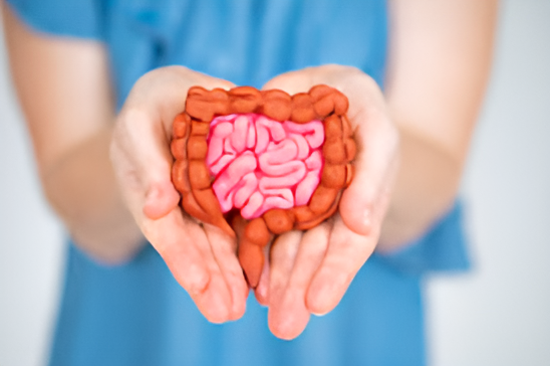
Good digestion is part of the key to a healthy body and mind. When your digestive system is in good working order, your body receives the nutrients that it needs in order to grow, stay active, and fight off disease. If your digestion is poor, however, you may feel bloated, tired, or even queasy. Luckily, you don’t need to drastically alter your habits to correct this. Daily habits can help your digestion and make you feel better. Today, we’ll talk about the easy and natural ways to support your daily digestive health.
Why Your Digestion Needs Daily Care
Your body’s digestive system is working around the clock, even when you’re sleeping. It breaks down the food you eat into nutrients and sends them to the parts of your body that need them. When your digestion is healthy, everything works just fine from the way you feel after meals to the amount of energy you have. But when digestion is sluggish, constipation, gas, and stomach pain begin to happen. Maintaining your digestive system every day enables your body to effectively absorb nutrients and enables you to feel light and energetic.
Eat More Fiber-Rich Foods Every Day
Fiber helps move food through your body and keeps your stomach and intestines healthy and clean. It prevents constipation. You can get fiber from many foods like fruits, vegetables, whole grains, lentils, and beans. Have a salad, an apple, or a whole-grain sandwich every day. These keep your digestive system functioning well and in balance. The more unprocessed and natural your food is, the better it is for your gut. Begin to add fiber to your diet slowly and include water in order to help it work better.
Drink Plenty of Water Throughout the Day
Water helps digest food in your body and flushes out waste from your body. Without enough water, digestion slows down, and constipation or cramps may result. Try drinking at least 6–8 glasses of water every day. Have a bottle of water with you at all times to make it easily accessible. You can also drink water-filled foods, such as cucumbers, oranges, and watermelon. If water becomes too bland, add lemon or mint to it for a flavor. Keeping yourself hydrated is one of the easiest ways to help in easy and smooth digestion.
Chew Your Food Slowly and Properly
Digestion begins in the mouth. When you chew food well, it is shredded into smaller pieces so it will be easier to digest. Failure to chew for a sufficient amount of time or rushing through eating may cause digestion to be harder. Try taking small bites and chewing each mouthful 15–20 times. This not only aids in digestion but prevents you from eating more than you can handle. Eating slowly allows your body time to catch up with your brain, leading to feeling better in general after a meal. Slow down and savor your bites.
Add Probiotic Foods to Your Diet
Probiotics are “friendly” bacteria that maintain the health of your gut. They facilitate digestion and can even help reduce bloating and gas. Yogurt, kefir, kimchi, miso, and pickles are all probiotic foods. These foods stabilize your gut bacteria and strengthen your digestive system. Try mixing in a tablespoon of yogurt in your morning breakfast or consuming some fermented vegetables during lunch. You don’t need much—small amounts daily can make a big difference in the long term.
Don’t Overeat and Eat Regularly
Overeating at one meal will slow down your digestion and leave you feeling sleepy or sluggish. Try to eat smaller portions and stop when you feel approximately 80% full. This leaves your body enough space and energy to digest food without exerting. Eating meals at evenly spaced intervals also helps. Skipping meals or eating meals very late at night can confuse your stomach and slow down digestion. Stick to a regular eating schedule with breakfast, lunch, and dinner. Thus, your stomach knows what to expect and functions optimally.
Keep Active With Light Daily Movement
Exercise is not just good for muscles—it is also beneficial for your stomach. Light exercise helps your body digest food more efficiently. Even a 15–30 minute walk after meals can enhance digestion. Stretching, yoga, or outdoor games can maintain the body’s activity and prevent bloating. If you spend long periods sitting, your digestion can be impaired. So try and stand up and move around every hour. Being active not only benefits your tummy but also your mood and energy.
Reduce Stress to Support Your Stomach
Stress works on your body in a number of ways—including the efficiency at which you digest food. When stressed, your body may release fewer digestive enzymes and slow down the movement of food through your digestive system. This can lead to bloating, cramps, or even nausea. Engage in deep breathing, brief walking, or fun activities to soothe your mind. Listening to music, reading, or talking to friends can also placate stress. Caring for your mind is as important as what you are feeding your body. A calm mind and healthy stomach go hand in hand.
Your Digestive Health Is in Your Hands
You don’t need to be taking pills or eating special foods to digest more effectively. Proper daily habits can make a huge difference. Fiber-rich foods, lots of water, slow chewing, and stress control are all simple but powerful measures. Just start small, be regular, and listen to your body. With a bit of attention and TLC, your digestion will thank you, and you’ll be lighter and healthier every day.
-

 Healthy food1 month ago
Healthy food1 month agoHealthy Vegan: Fact vs. Fiction
-

 Healthy food3 weeks ago
Healthy food3 weeks agoChia Seeds: Tiny Grains With Giant Power
-

 Mind & Soul3 weeks ago
Mind & Soul3 weeks agoThe One-Minute Calm: How Breathing Can Change Everything!
-

 Healthy food3 weeks ago
Healthy food3 weeks agoFood to Fight Depression and Anxiety: What to Eat to Feel Better
-
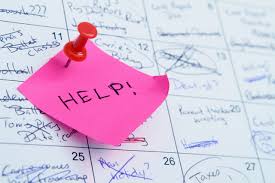
 Personal Development2 weeks ago
Personal Development2 weeks agoSchedule Overload: How to Handle a Busy Life Like a Pro
-

 Mind & Soul3 weeks ago
Mind & Soul3 weeks agoUnderstanding Anxiety: A Guide to the Different Types
-

 Body and Health1 week ago
Body and Health1 week agoFiber in Your Diet: Why It Matters and How to Get More
-
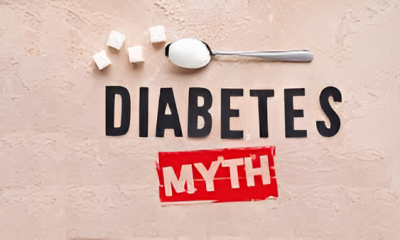
 Body and Health3 weeks ago
Body and Health3 weeks ago8 Diabetes Myths You Shouldn’t Believe





















